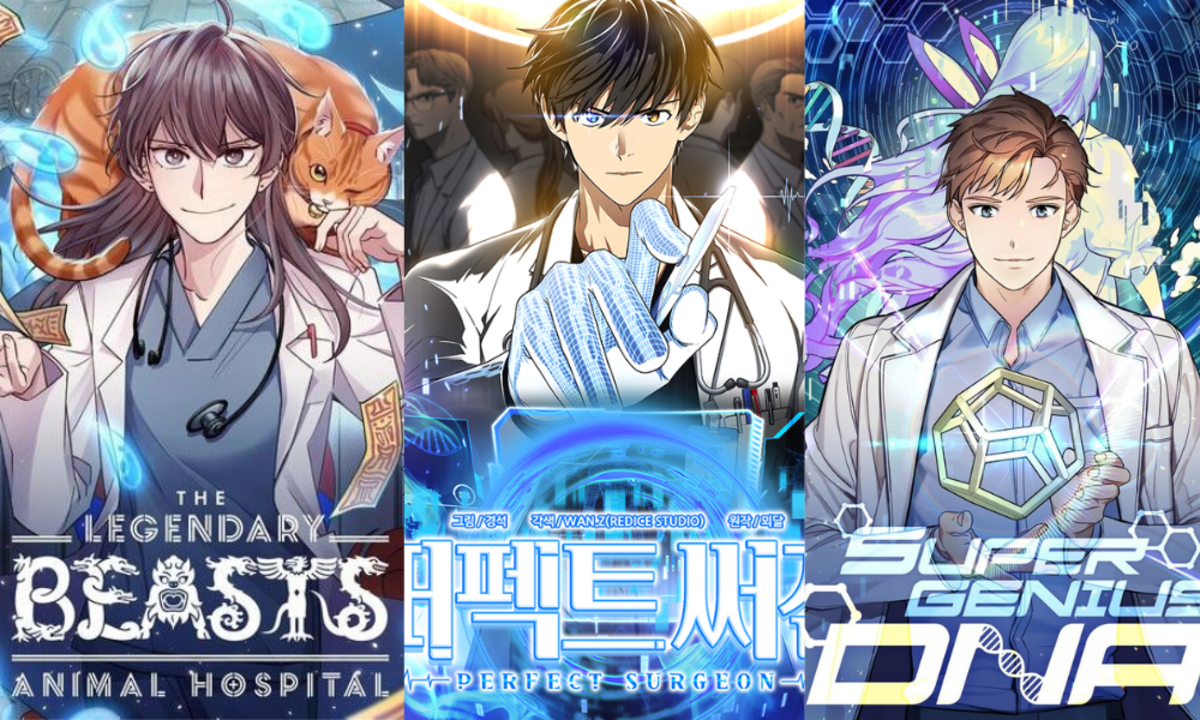Why Do Writers Write What They Do? Tuesday Writer's Workshop, with one writer's approach to an answer
1. Welcome to this session of the Tuesday Writer's Workshop, a regular feature of our focus every Tuesday on adult continuing education in English and American language and literature. We try to consider issues of concern to a wide range of writers, or would-be writers, so we enjoy hearing your questions, your ideas, your response, and your suggestions.
2. Many times I have asked myself the question, "Why do writers write what they do?" Sometimes in the throes of my own "writing process," I wonder why exactly I am doing this. "From what inner or outer need or desire does the answer to such a question even matter to me, much less to anyone else?"
3. The question is a good question that many writers like to ask, but like other good questions, it is a loaded one, provocative of the multi-valenced discussion suitable to an Internet writer's platform like HubPages where I first saw it asked by NorthwestStarr (in July 2011).
4. What writers? What kinds of needs or wants? What stage of their work, or of their life? And work undertaken for what purpose? In pursuit of what goal? If argumentative, then arguing, agreeing, or disagreeing about what, and with whom?
5. Different writers, of course, give individual answers to such questions. It may be that no two answers, sufficiently examined, will prove exactly alike. Even identical twins grow into adults with differences to highlight their similarities. We urge all new writers to respect and follow this healthy example: find and use models in writers you like, yes, but then let the rest of us know where and how you differ as well as where and how you agree.
6. For myself, I venture to suggest that why or how writers write, what they "need" or don't need, depends on how and why they have been readers,and on many other difficult to understand aspects of their past social learning.
7. As a writer reading a piece of writing, I first look to see what I might find of value to myself or others in my larger frames of social reference, and what more particularly that value might be.
8. Value, however, has a habit of appearing in many different forms: new imagery, new ideas, new vision, new style, new vocabulary, old vocabulary used in new ways, from simple, everyday humor (as in Ogden Nash) to complex humor and philosophy (as in T.S. Eliot), dramatic motion, explanation, observation, surprise, awe, even fresh vapidity, and so on.
9. Diverse reading experience, bundled with all the rest of my life, seems determinative to me in understanding why I write, because I find myself writing to different wants and needs at different times. Fortunately I write in the stream of a vast literary community that began, so far as we know, with a few innovative literary giants some 5,000 years ago in the temples of ancient Sumer.
10. Perhaps I want, or need, to describe the stream of one rich day's experiences to a few friends, pretending to be James Joyce wandering through Dublin, but settling for Max Havlick in one of his younger days in Tulsa, Waco, Louisville, New York, Milwaukee, Los Angeles, Cambridge, or working at the United Nations in New York, or leaving Tulsa for Chicago (as in the occasional verse "When Fay and I Got Married, July 6, 1986), or teaching history at Columbia College in Chicago, or living in a small town like Villa Park in Chicago's western suburbs.
11. Perhaps I envision a poem like "Permission to Write" that urges one of my newly found poet friends to write more poetry, and I have set my heart on usefully encouraging others as well, following the perceived motivation of Percy Bysshe [bish] Shelley, whose tragic accidental death occurred 190 years ago on July 8, 1822.
12. Perhaps I need to say, "I love you" more or less obliquely to some new friend (as in the experimental American sonnet "I Used to Eat a Little Box of Candy Daily") to save each of us any unnecessary embarrassment, pretending to be like 14th-century Dante to his ideal woman Beatrice, or his friend Petrarch to hie beloved Madonna Laura. Or do I need to say, "I love you still," to someone dear to me from my busy youth so many years ago, when I did not have time to spare for speaking of love, much less for writing poetry about it?
13. Perhaps I want to get some pain or other emotion off my chest by writing something snide, clever, or sad, and instructive all at the same time (as in "A Simple Smirk is Not a Useless Quirk"), more or less like the mordant "Résumé" of reasons for not committing suicide written in 1926 by Dorothy Parker, who this year (2012) on August 2nd turned 119 years young, still being read while most of her contemporary peers have been relegated to the history books.
14. Perhaps I want to share in iambic, half-true lines some dramatic story rolling around in my mind (as in the American sonnet "A Persevering Miner Searching"), and pretend to be like William Shakespeare in the final years of Queen Elizabeth the First, writing Hamlet for the Lord Chamberlain's Men to perform at the Globe Theater, and thus excuse myself just one more time for reading the first act out loud to someone I live with and happen also to love, if only because she so often listens when I read.
15. And yes, because I appreciate especially that small handful of wonderful souls who have actually read and commented on my work, in one important sense, every work I write goes forth for all of them as well.
16. Even active readers, however, some with many different motivations and perspectives of their own. Some seek to understand, some to encourage, others to critcize or to scorn, or to conclude that I am really nuts.
17. Some readers may care not at all to evaluate any observable quality in my writing, or its lack thereof, but to search for certain social, political, or religious ideas they think they like or dislike, and thereby gain some leverage to agree or disagree with me as a person unashamed to write such things in public.
18. This all belongs to the drama of growing up, and growing older, and to the vastness of human life itself. So I treasure every kind of reader and non-reader. They all, whether I happen to like it or not, play their own integral parts in the wider world community of which I also, especially as a writer, cannot avoid being a part.
19. I feel obligated, furthermore, to fit responsibly somewhere within the vast panorama of creative people I have encountered during my lifetime of study into the history of ideas and culture, to which my library, the portraits on my wall, as well as my conscience, still bears daily witness.
20. With each new writing project, St. Matthew, in a large calendar iconic portrait for July 1994 (Icone, Firenze: IFI), glances with me at my pictures of Mozart, Gandhi, Sean Connery, Dustin Hoffman, church historian Martin Marty, former president Bill Clinton reading a book, actor Hugh Lurie looking sternly straight at me from the set of "House," theological psychoanalyst Robert L. Moore celebrating with Fay and me the publication of The Archetype of Initiation (Xlibris, 2001) which I edited for him, Henry Apperson, my friend of 61 years from our days at East Texas Baptist College in Marshall, Texas (1951-53), myself at age 38 building shelves for Maximilian's Bookshop in Gardner Massachusetts (1971-72), my father as an intense young man about 30 (1939), and my wife Fay as a 17-year-old high school senior about to graduate in 1965.
21. Standing on a study table in the other room, a color replica of a Rembrandt self-portrait joins this elaborate conspiracy to keep me as humble as possible (from the New York Times, Friday, April 6, 2012, p. C23).
22. With every writing project, all of these images, and many more, come into view as I keep searching within my culture, and within myself, to find ever more satisfying answers to the most interesting and basic questions about my own self and the context of the world as experienced around me: "Who or what am I, after all? What do I have to say, and why is that? What are the deeper purposes, motives, interests, and goals for my writing, or doing whatever it is that I am doing? What is my audience? What is my context? What is my world?"
23. Now, to the bottom line, dear reader -- what are your reasons for writing? What does your writing represent for you? These questions only you can answer, and we wait to hear what you think. Meanwhile, thank you for joining in this Tuesday Writer's Workshop, and best wishes to you, whatever you write.
First draft July 8, 2011 on HubPages, revised November 16, 2012.
_________________________________________________
Copyright (c) 2012 by The Max Havlick School, Villa Park, IL 60181-1938, all rights reserved. To join us and become a leader/teacher of adult continuing education in your neighborhood, or to contact Mr. Havlick for any reason, either send us snail-mail, or for email, go to our Profile Page on HubPages, click "Fan Mail," then select "Send Email." We hold all contact information in the strictest confidence.
Thank you for your support of this work.








